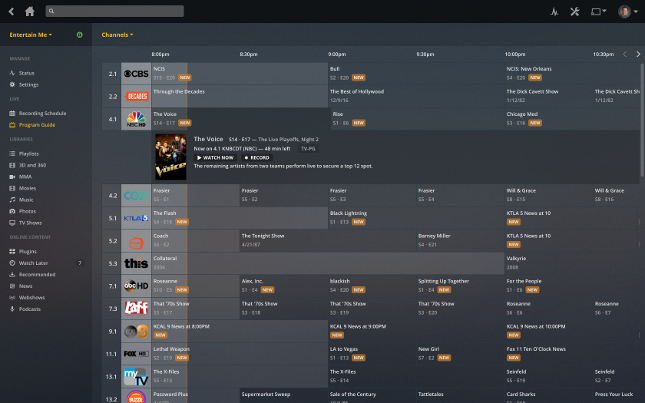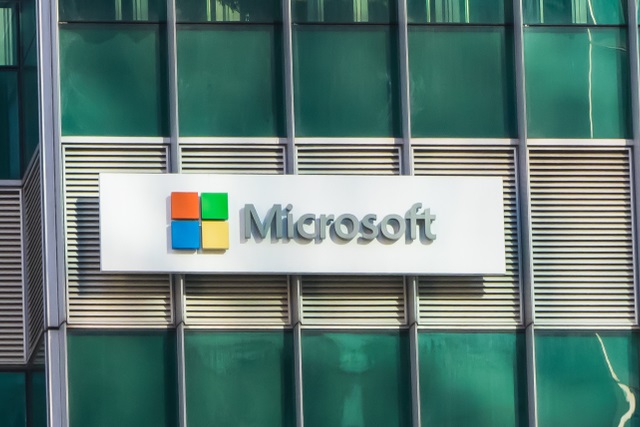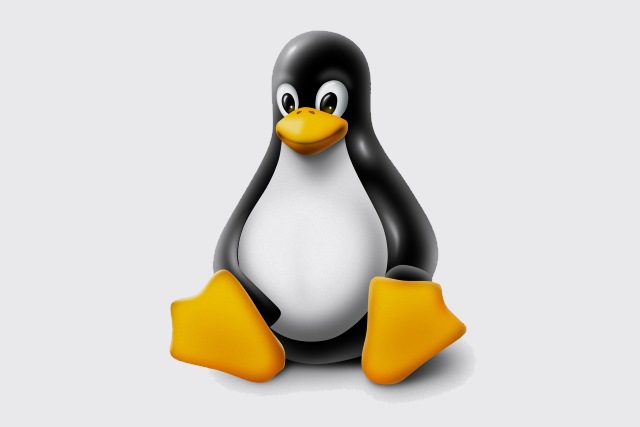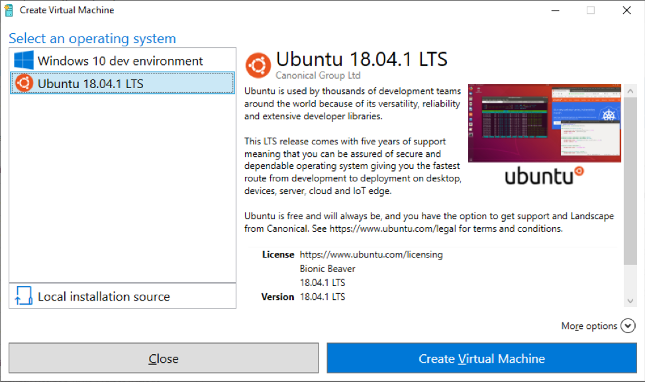
UBports Foundation releases Linux-based Ubuntu Touch OTA-5
Ubuntu Touch never lit the world on fire as many Linux fans had hoped, but to be honest, most mainstream consumers didn’t even know it existed. So when Canonical canceled it, not many people cared. Luckily, since the project was open source, it was easy for another organization — in this case, UBports — to grab the torch and run with it.
Back in August, UBports surprised many with the Ubuntu Touch OTA-4 release, which breathed new life into tablets and smartphones that ran the Linux distro. Now, OTA-5 is here to take it up yet another notch. The new version gets a new web browser called Morph which is based on QtWebEngine. Best of all, OTA-5 gets improved adaptive scaling for a better experience regardless of screen size. From a superficial standpoint, there are new wallpapers based on community submitted artwork.

Plex for Linux now available as a Snap
Microsoft is having a terrible time lately. Sometimes it feels like the company wants to sabotage itself. The most recent debacle is its flagship product -- Windows 10 -- deleting user files. Even worse, the company ignored user feedback that it was happening! Quite frankly, after such a scary thing, I am not sure how people can trust Microsoft's operating system with important data.
Thankfully, you do not have to use Windows. These days, it is easier than ever to use Linux instead. There are plenty of great apps available for operating systems like Ubuntu, Fedora, and more. Canonical's containerized Snap packaging makes it even simpler to both install Linux apps and keep them updated. Today, a very popular app, Plex Media Server, gets the Snap treatment. In other words, you can install the media server program without any headaches -- right from the Snap store!

Microsoft joins Open Invention Network and open sources its patent portfolio
Microsoft has joined the "largest patent non-aggression community in history", the Open Invention Network (OIN), effectively open-sourcing almost its entire patent portfolio.
The company has shown increasing warmth to the open source community in recent years, and this latest move means that other OIN members will have access to its patents -- with the exception of those relating to Windows and desktop applications. The OIN embraces -- as Microsoft has done of late -- Linux "as a key element of open source software".

Mageia 6.1 Linux distribution now available
While many people are familiar with popular Linux distributions like Ubuntu, Fedora, and Mint, there are far more open source operating systems available. There are probably too many, but I digress. Please know, just because a distro isn't very well known, doesn’t mean it's bad.
One such quality Linux distro that isn't super popular is Mageia. It is a fork of the once wildly popular Mandriva operating system. Today, Mageia 6.1 becomes available for download. It features LTS Linux kernel 4.14 and updated Nvidia drivers.

Cuddle up with Ubuntu Linux 18.10 Cosmic Cuttlefish Beta now!
Just yesterday, we shared with you the official Ubuntu Linux 18.10 Cosmic Cuttlefish wallpaper. And yeah, while it looks cool, it's not as exciting as, say, a Beta release of the upcoming operating system. Today, that is exactly what we get.
If you like to run pre-release Linux-based operating systems for fun -- which I do -- you can download the ISO immediately. With Ubuntu, these late-stage Beta releases are usually very stable. After all, the final version will drop next month. So while you should install it at your own risk, I would say you are probably safe with it.

Canonical unveils the official Ubuntu Linux 18.10 'Cosmic Cuttlefish' wallpaper
Twice a year, a new version of Ubuntu is released -- in April and October. We are currently in September, meaning a new release is just around the corner. As per normal naming guidelines (YY.MM), it will be version 18.10. In addition to a number, Canonical assigns a fun name too -- based on an animal, alphabetically, preceded by a word that starts with the same letter. In this case, Ubuntu 18.04 is using the letter "C." What is it called? Cosmic Cuttlefish.
The name and version number is only part of the tradition, however, In addition, Canonical releases a special wallpaper based on the name. The animal is often a line drawing with the background using the classic Ubuntu magenta/orange gradient color. Today, on Twitter, Canonical unveils the official Cosmic Cuttlefish wallpaper.

You can pre-order System76's Linux-powered open source 'Thelio' computer next month
When you buy a System76 computer today, you aren't buying a machine manufactured by the company. Instead, the company works with other makers to obtain laptops, which it then loads with a Linux-based operating system -- Ubuntu or its own Pop!_OS. There's nothing really wrong with this practice, but still, System76 wants to do better. The company is currently working to manufacture its own computers ("handcrafted") right here in the USA! By doing this, System76 controls the entire customer experience -- software, service, and hardware.
Today, the company announces that the fruits of its labor -- an "open-source computer" -- will be available to pre-order in October. Now, keep in mind, this does not mean the desktop will be available next month. Hell, it may not even be sold in 2018. With that said, pre-ordering will essentially allow you to reserve your spot. To celebrate the upcoming computer, System76 is launching a clever animated video marketing campaign.

Fedora 29 Beta Linux distro now available for download with improved Raspberry Pi support
If you are going to use Linux on the desktop, you might as well use Fedora. Why? Well, it is a pure open source experience. I mean, why switch from Windows to a distro that isn't entirely focused on FOSS? You should go all in! Not to mention, it uses very modern packages while retaining stability. Oh, and it uses the best overall desktop environment, GNOME, by default. It's no wonder the father of Linux, Linus Torvalds, uses it.
The next version of the operating system is Fedora 29, and today, it achieves Beta status. It features updated packages, improved support for Raspberry Pi, and more.

Windows 10 now has its own exclusive Linux distro -- WLinux
There are a number of Linux distros available for the Windows Subsystem for Linux (WSL), including Ubuntu, openSUSE Leap 42, Debian GNU/Linux, and Kali Linux.
However, these distros tend to lack development tools and contain unnecessary packages, such as systemd. WLinux is a new, open source Linux distribution based on Debian stable that has been specially optimized for WSL.

Ubuntu-based elementary OS 5.0 'Juno' Beta 2 Linux distro now available
Why don’t more desktop computer users use Linux? Well, software compatibility aside, there is fear of change and the unknown. For a user to switch from Windows, it must be a fairly simple affair. For years, just installing a Linux-based operating system was a daunting task. These days, it can be faster and easier than installing Windows 10 -- depending on distro, of course.
For beginners, once installed, their chosen Linux distro should be easy to use with an intuitive desktop environment. I'm a big fan of GNOME, but understandably, not all folks like it -- especially Linux novices. One particular Linux-based desktop operating system has been focusing on accessibility to all -- elementary OS. This distro is polished and aims to be easy to use for both experts and beginners alike. Today, version 5.0 of the OS -- called "Juno" -- reaches Beta 2. Impressively, there have been over 200 fixes implemented since Beta 1.

Canonical reveals Ubuntu Linux 14.04 LTS 'Trusty Tahr' Extended Security Maintenance (ESM) plans
When it comes to upgrading an operating system, home users have plenty of flexibility. Whether running Windows, Mac, or a Linux-based OS, moving to the latest and greatest should be a fairly uneventful affair. For businesses, however, bleeding edge is hardly ideal. After all, companies use their computers to make money -- there is no room for downtime due to upgrade issues. In other words, if it isn't broken, don't fix it. This is why many in the corporate world still run Windows 7.
Of course, staying on an older operating system can be problematic as well. As long as the OS is supported, you are golden. To run an operating system that no longer gets security updates is pure madness, though. Luckily, if you need to run an unsupported operating system, some maintainers, such as Canonical and Microsoft, will still support you -- if you pay up. For example, next year, Ubuntu 14.04 will reach end of life, so today, Canonical announces its Extended Security Maintenance (ESM) plans.

After Torvalds' apology, the Linux community is adopting a new code of conduct
Following years of questionable behavior and ranting, the grandfather of Linux Linus Torvalds issued an apology and announced his intention to take a break from kernel work. Now the Linux community is adopting a new code of conduct to help make the environment more welcoming.
Based on the Contributor Covenant, the new Code of Conduct seeks to make participating in the community "a harassment-free experience for everyone, regardless of age, body size, disability, ethnicity, sex characteristics, gender identity and expression, level of experience, education, socio-economic status, nationality, personal appearance, race, religion, or sexual identity and orientation".

Chrome OS 69 rolls out with Linux app support and new Material Theme
Google is in the process of rolling out Chrome OS 69 to the stable channel, giving more users the chance to enjoy the new Material Theme and take advantage of new features such as support for Linux apps.
The updated look will be familiar to Android users -- rounded corners abound -- and there are numerous other changes and additions including a new Night Light mode, better dictation options, and an updated Files app.

Microsoft and Canonical release Ubuntu Linux virtual machine image for Hyper-V Quick Create
Linux may be the future of computing, but Windows is the present -- on the desktop, at least. For now, both business and home users are wise to stick with Microsoft's operating system. With that said, tech savvy users might be better served by, say, Linux Mint or Ubuntu. While Windows 10 is riddled with privacy and user interface issues, it is still the least stressful way to use your computer -- you are less likely to have hardware or software compatibility issues.
If you are interested in Linux but need to use Windows 10, there are many ways to also run operating systems based on the open source kernel, such as dual-booting or running a virtual machine. Not to mention, with Windows Subsystem for Linux, you can even download and install distros directly from the Microsoft Store! Today, the Windows-maker and Canonical announce a new way to run Ubuntu on Windows 10 -- a special "Hyper-V Quick Create" VM image

Linus Torvalds apologizes to Linux community for unprofessional 'flippant attacks'
Linux creator Linus Torvalds has used his regular Sunday email to the Linux Kernel Mailing List to apologize for unprofessional behavior, and to announce that he is taking a break from his Linux kernel work.
Acknowledging that he has previously launched "flippant attacks" on people -- something he labels as "unprofessional and uncalled for" -- Torvalds says he wants to "apologize to the people that my personal behavior hurt and possibly drove away from kernel development entirely".
